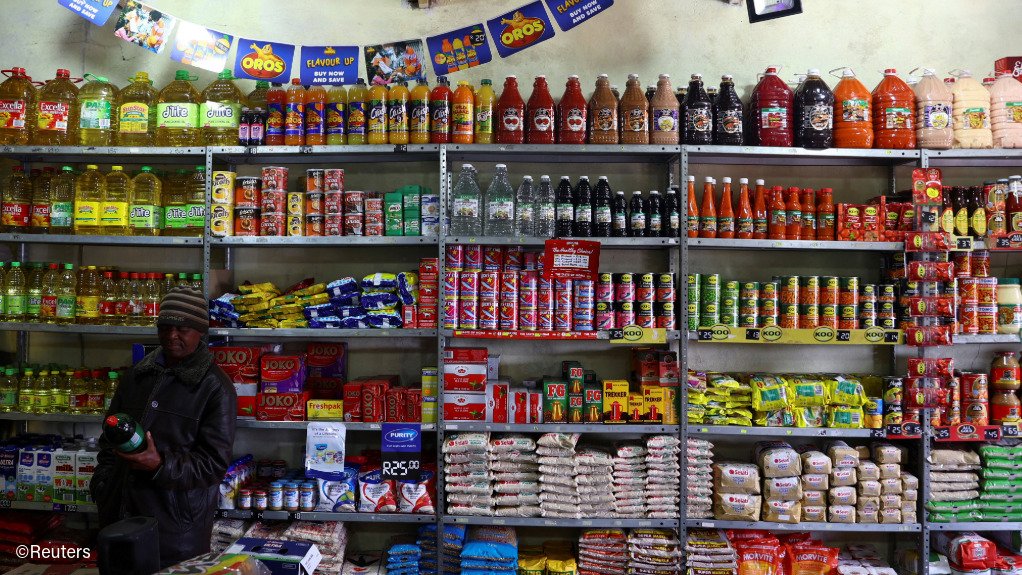B20 task force warns of global food system collapse without urgent action
The looming global food crisis is not hypothetical but a reality that needs to be urgently addressed, B20 Sustainable Food Systems and Agriculture Task Force chairperson Debra Mallowah has said.
Speaking at a B20 South Africa virtual roundtable discussion on July 30, she presented the task force’s action plan, warning that the world was already experiencing intensifying disruptions.
She emphasised that the issue was not confined to the poor, rural areas, or the Global South, but represented a systemic global failure.
“These ripple effects we’re already seeing, they are accelerating. Without bold action, this trend will only worsen. It’s not a problem for the poor, or the rural, or the Global South. It is a system failure, and we are all in the system today,” Mallowah stated.
She outlined a grim reality in which one in ten people globally face hunger, with food prices placing significant strain on household budgets. Farmers, she added, were under growing pressure from increasing costs, volatile weather and declining access to arable land. In many vulnerable regions, hunger was already on the rise.
“But food security is not just a humanitarian issue. It is an economic issue, a national security issue, a climate issue, and ultimately, a shared global issue,” Mallowah said.
Looking ahead, she projected that, by 2030, the world would need an additional 80-million hectares of cropland to feed a growing population, with nearly 70% of this land requirement situated in Africa and Latin America.
This, she said, raised urgent questions about not just increasing food production, but also about doing so sustainably.
Africa, which holds 60% of the world’s uncultivated arable land, is home to millions of smallholder farmers. These farmers currently produce 70% of the continent’s food, yet they continue to lack access to finance, markets, infrastructure and technology.
Mallowah then laid out four key strategic messages developed by the task force, which she described as essential and concurrent levers to build food systems that are resilient, fair and sustainable.
“Message one. Global food systems are under strain and the clock is ticking. We are at a tipping point. Without urgent, coordinated action, we risk deeper hunger, sharper economic shocks, irreversible environmental damage,” she said.
She warned that what the world was facing was not a series of isolated crises, but the result of fragile food systems exposed to accelerating threats, from climate change and geopolitical tension to economic volatility. Food systems, she said, must now be regarded as critical infrastructure for global stability, not merely development.
Message two called for scaling inclusion, innovation and productivity. Mallowah said global food demand was increasing rapidly, yet production models had not kept pace. Many farmers, particularly in low- and middle-income countries, still operated with limited support and minimal access to modern agricultural tools and services.
“Now is the time to scale inclusion, innovation and productivity. We cannot feed a growing world without data, tools and exclusionary systems. Inclusion is not charity. Inclusion is strategy. It is how we boost productivity, expand opportunity and build food systems that serve everyone,” Mallowah said.
She cited that, in Brazil and other countries, fewer than 30% of farmers had adopted digital tools. To address this gap, she urged investment in financial services, rural infrastructure, digital platforms and extension services for smallholders.
In message three, Mallowah highlighted trade inefficiencies as a critical area for reform. She said a large proportion of food losses, up to 30% in some regions, occurred after harvest, not because of low yields but because of logistical problems such as inadequate storage, poor transport networks, and long border delays.
“We lose too much food and too much time to unnecessary trade barriers. Reducing border delays, harmonising standards and investing in cross-border infrastructure doesn’t just move food faster, it strengthens entire markets and can make immediate, system-wide impact,” Mallowah said.
She described the African Continental Free Trade Area as a significant opportunity to unlock up to $180-billion in intra-African agricultural exports, and to convert fragmented value chains into regional economic drivers.
Her fourth message declared sustainable agriculture as non-negotiable. Mallowah stated that current food systems accounted for about a third of global emissions and were worsening deforestation, water scarcity and biodiversity loss. She called for systemic change in agricultural practices.
“To feed the future, we must farm differently. This means shifting to regenerative practices, investing in soil and water systems, supporting climate-smart crops and seed systems, and making sustainability profitable for farmers. It is not about balancing trade-offs. It’s about building systems that feed people, protect the planet and ensure that livelihoods last well beyond the next harvest,” Mallowah said.
She said the four strategic messages formed a blueprint for immediate action and must be pursued simultaneously.
She stressed that the next five years would be decisive in determining whether the global community continued to experience worsening food insecurity or succeeded in establishing inclusive, resilient and lasting food systems.
“The next five years will determine whether we stay on the path of strain, shortfalls and shocks, or whether we build food systems that are resilient, inclusive and built to last,” Mallowah said.
Article Enquiry
Email Article
Save Article
Feedback
To advertise email advertising@creamermedia.co.za or click here
Press Office
Announcements
What's On
Subscribe to improve your user experience...
Option 1 (equivalent of R125 a month):
Receive a weekly copy of Creamer Media's Engineering News & Mining Weekly magazine
(print copy for those in South Africa and e-magazine for those outside of South Africa)
Receive daily email newsletters
Access to full search results
Access archive of magazine back copies
Access to Projects in Progress
Access to ONE Research Report of your choice in PDF format
Option 2 (equivalent of R375 a month):
All benefits from Option 1
PLUS
Access to Creamer Media's Research Channel Africa for ALL Research Reports, in PDF format, on various industrial and mining sectors
including Electricity; Water; Energy Transition; Hydrogen; Roads, Rail and Ports; Coal; Gold; Platinum; Battery Metals; etc.
Already a subscriber?
Forgotten your password?
Receive weekly copy of Creamer Media's Engineering News & Mining Weekly magazine (print copy for those in South Africa and e-magazine for those outside of South Africa)
➕
Recieve daily email newsletters
➕
Access to full search results
➕
Access archive of magazine back copies
➕
Access to Projects in Progress
➕
Access to ONE Research Report of your choice in PDF format
RESEARCH CHANNEL AFRICA
R4500 (equivalent of R375 a month)
SUBSCRIBEAll benefits from Option 1
➕
Access to Creamer Media's Research Channel Africa for ALL Research Reports on various industrial and mining sectors, in PDF format, including on:
Electricity
➕
Water
➕
Energy Transition
➕
Hydrogen
➕
Roads, Rail and Ports
➕
Coal
➕
Gold
➕
Platinum
➕
Battery Metals
➕
etc.
Receive all benefits from Option 1 or Option 2 delivered to numerous people at your company
➕
Multiple User names and Passwords for simultaneous log-ins
➕
Intranet integration access to all in your organisation




















